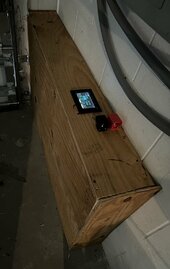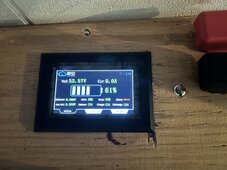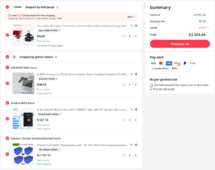OTRwSolar
Solar Enthusiast
- Joined
- Apr 5, 2021
- Messages
- 208
We purchased a DC power supply to top-balance our first build. Quickly transitioned to installing Heltec 5a active balancers (with an off/on switch) for subsequent builds. The Heltecs do a fine job of top-balancing. Only takes a few hours with large deltas---smaller deltas, less than an hour. Plus they can be easily switched on to top-balance, as needed, down the road. Rewiring a battery pack, after the fact, to top-balance with a DC power supply is a PITA. The DC power supply has come in very handy for various other electrical projects and testing, but we no longer use it for top-balancing.I am an engineer with a lot of experience with large 48V and 53V DC power plants. I am normally a DIY type of person. I do my own appliance repairs and I do the maintenance on my own vehicles. I've restored 5 "handy-man special" homes, inluding upgrading thier electrical panels. I also have an extensive collection of tools, meters, etc.. Having said that I would need to buy a variable DC power supply if I decide to put together my own LiFePO4 battery. So I'm sure that I have the skills and tools to build a battery. My quesquestion has more to do with reliability. Unfortunately I don't have any experience with LiFePO4 cells and I don't how reliable they are. So I'd like to hear your opinions on whether ready made 12V batteries more or less reliable than the DIY batteries. I am honestly leaning towards building my own battery, but I don't know how reliable those 3.2V cells are.
Once you start doing DIY builds you'll find the very least of your worries is reliability. Cell failures are extremely rare. BMS's may occasionally fail, but they're very easy to replace. Your biggest concern, by far, is hoping the vendor sells you a well-balanced set of cells. Top-balancing can't fix cells that have inherently different ah capabilities. This is why purchasing from a reputable source is important.
Last edited:





